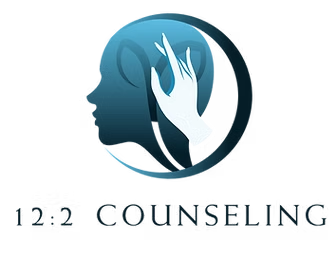Understanding Generational Trauma and Its Lasting Impact
.jpg)
What Is Generational Trauma?
Generational trauma, also known as intergenerational or transgenerational trauma, refers to the psychological effects of trauma that are passed down from one generation to the next. Unlike individual trauma, which stems from personal experiences, generational trauma affects entire families or communities over long periods. It often originates from large-scale traumatic events—such as war, genocide, slavery, colonization, displacement, or systemic oppression—that deeply disrupt family systems and cultural identity.
How Trauma Is Passed Down
Trauma isn’t only transmitted through stories or behaviors—it can also affect biology. Research in the field of epigenetics shows that trauma can alter how genes function without changing the DNA sequence itself. These changes can be inherited, meaning that the children or grandchildren of trauma survivors may carry biological markers of that stress even if they never experienced the original event.
Transmission also happens through:
· Parenting styles: A parent struggling with untreated trauma may become emotionally unavailable, overly protective, or even abusive—consciously or not.
· Family silence: Sometimes the original trauma isn’t talked about, leading to confusion, shame, or a sense that something is “wrong” without knowing why.
· Cultural patterns: Communities may develop coping mechanisms—like emotional suppression, hyper-vigilance, or mistrust—that persist long after the trauma itself.
Signs and Symptoms Across Generations
Generational trauma can manifest in ways that may not be immediately recognized as trauma-related. These can include:
· Chronic anxiety or depression
· Substance use disorders
· Difficulty forming trusting relationships
· Low self-esteem or a sense of identity loss
· High sensitivity to stress or feelings of helplessness
· Repeated patterns of family dysfunction
It can also influence broader community outcomes, contributing to cycles of poverty, violence, and marginalization.
Historical Examples
Some notable examples of generational trauma include:
· Descendants of Holocaust survivors often report anxiety, survivor’s guilt, and heightened fears.
· Indigenous communities across the world have suffered lasting trauma from colonization, forced assimilation, and loss of land and culture.
· African American communities continue to feel the effects of slavery, systemic racism, and historical violence, contributing to disparities in health, wealth, and opportunity.
· Refugee families who fled war or persecution often pass down the scars of displacement and survival trauma.
Breaking the Cycle
While generational trauma runs deep, healing is absolutely possible. Here are some ways to begin:
· Therapy: Mental health professionals trained in trauma-informed care can help individuals explore and understand inherited patterns.
· Storytelling and acknowledgment: Talking openly about past pain can break harmful silences and promote healing across generations.
· Cultural reconnection: Reclaiming language, traditions, and identity can be deeply therapeutic.
· Community support: Healing often happens collectively, especially when communities come together to honor resilience and share experiences.
How 12:2 Counseling Can Help
If you're ready to break the cycle of generational trauma, 12:2 Counseling offers compassionate, evidence-based supportfor families and individuals who want to rewrite their story. Kim Hernandez, a licensed therapist with a deep understanding of trauma, specializes in helping parents recognize and stop the unconscious patterns that keep pain cycling through generations.
Whether you're a new parent hoping to raise emotionally healthy children or someone finally ready to confront the wounds of your past, Kim provides a safe space to unpack the weight you're carrying—and start building a legacy of healing.
You are not alone. You are not broken. Healing is possible—and it starts with awareness.
To learn more or book a session, visit 12:2 Counseling and take the first step toward freedom from generational pain.
Here’s a good resource about “How to Heal from Inherited Anxiety and Break the Cycle.”
Subscribe to my newsletter
Stay connected and receive gentle insights, healing tips, and inspiration for your journey—subscribe to the newsletter today.
